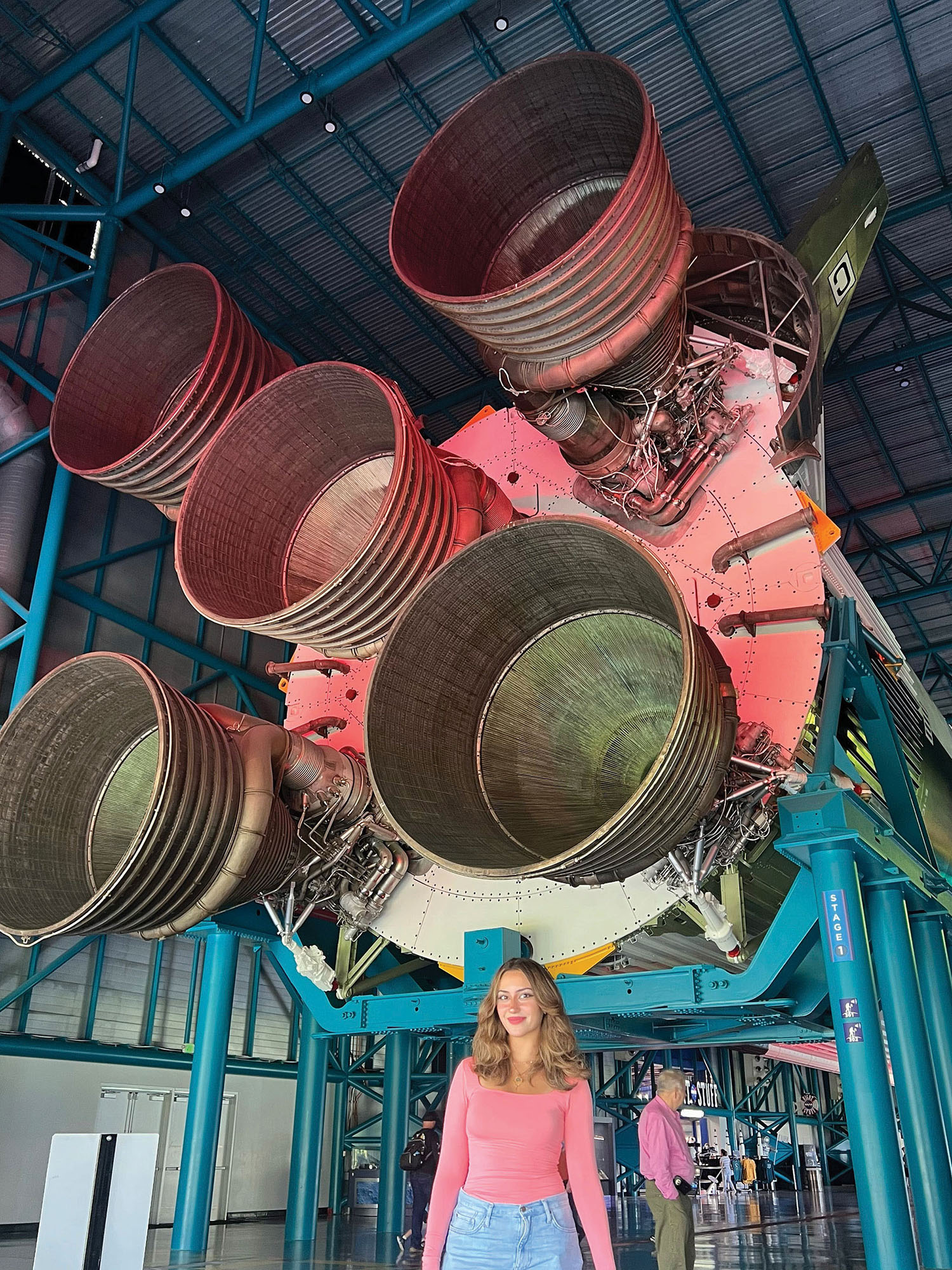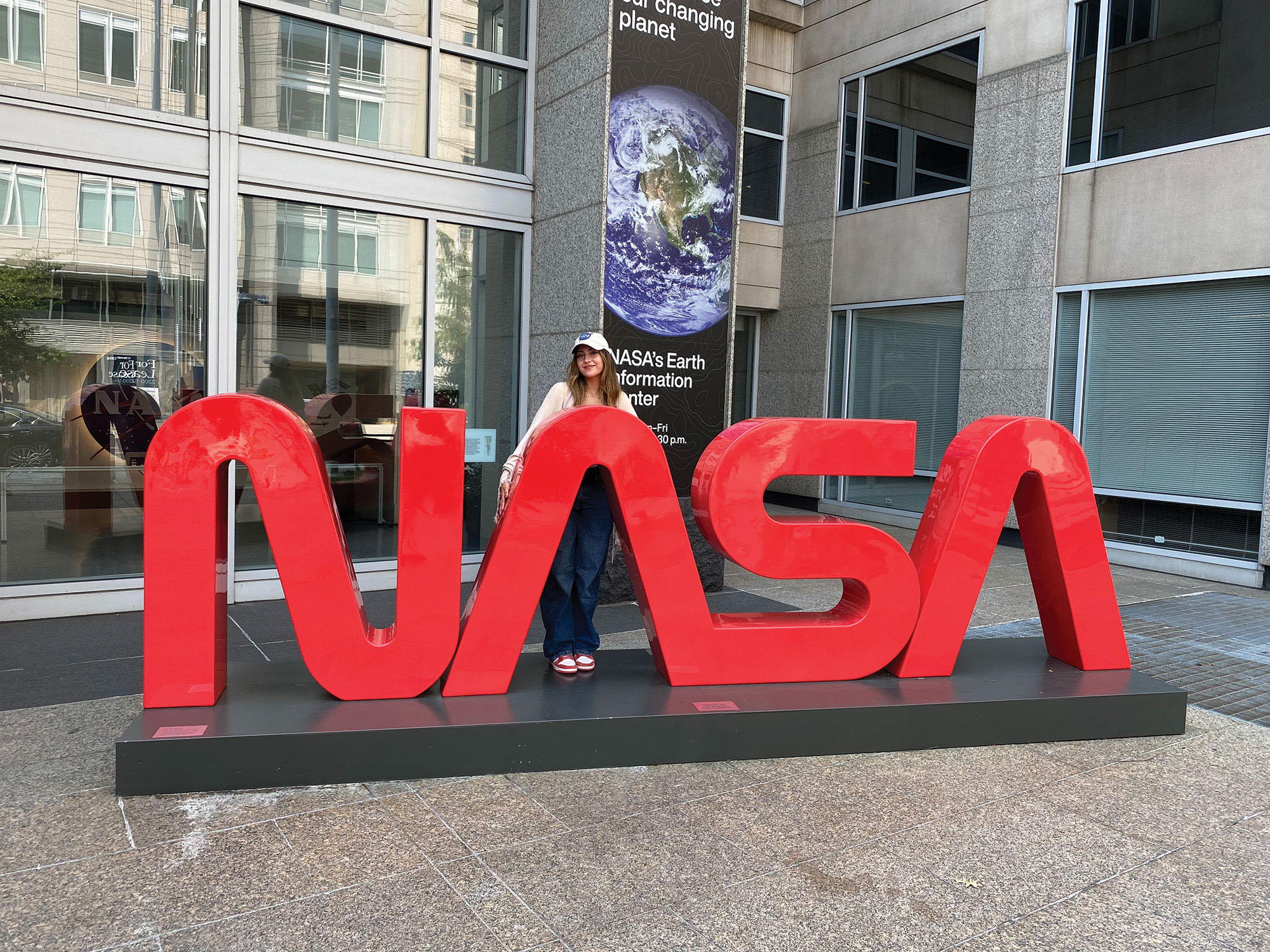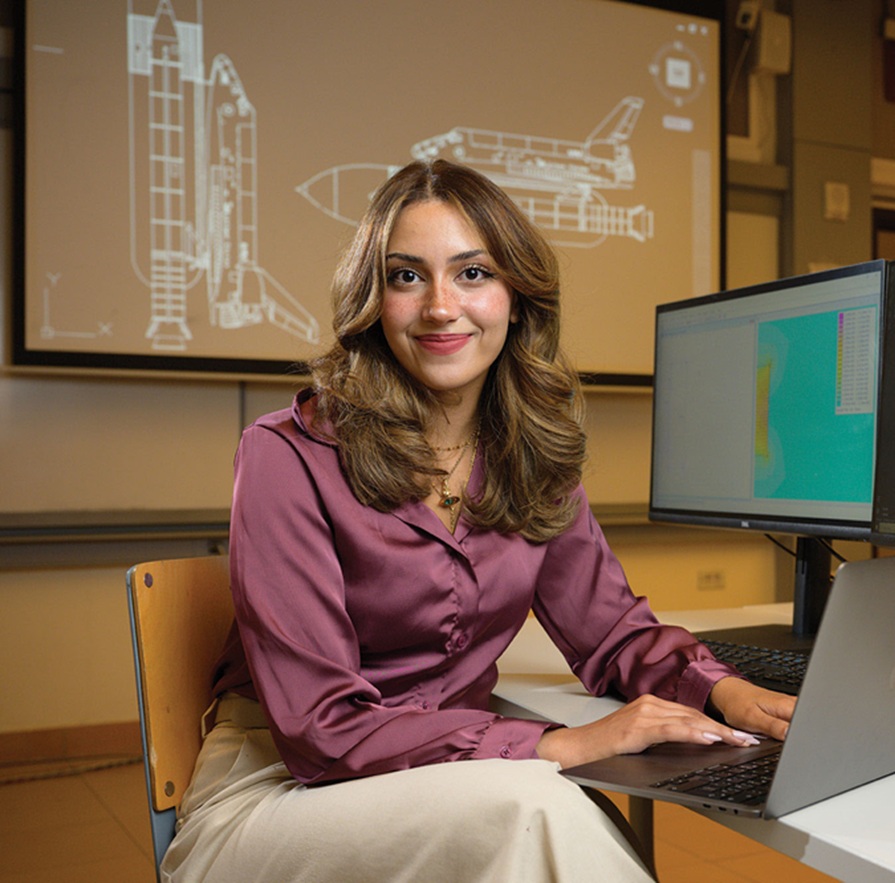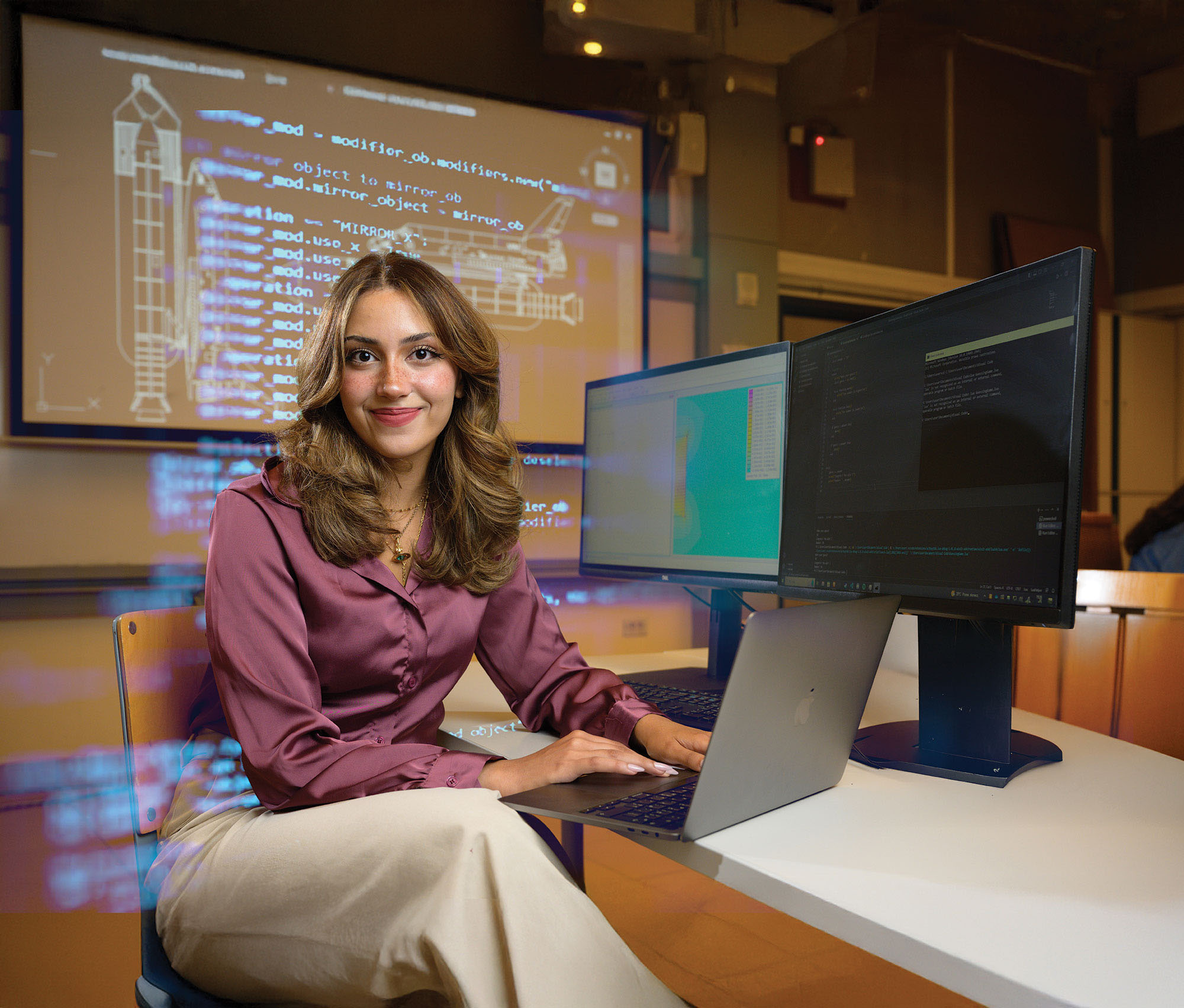A fresh computer science graduate is diving headfirst into the aerospace industry, fulfilling her childhood dream.
When Layla Mohsen ’25 was in middle school, she got a note from her physics teacher predicting that she would be “Egypt’s first rocket scientist.”
“That really impacted me because he believed in my potential,” she says. “I loved space as a child, read Stephen Hawking books when I was 13 and was enchanted by superheroes. My favorite superhero was Tony Stark [Iron Man], who was a genius in computer science and embedded systems, and I wanted to be like him.”
Today, 23-year-old Mohsen is one step closer to fulfilling her dream. She is a software developer at Princeton Satellite Systems in New Jersey, working on all types of spacecraft vehicles. She worked there as a summer intern during her senior year at AUC. After graduation, she continued to work with the company. “I was determined to utilize my computer science skills in aerospace,” Mohsen says. “I applied to many aerospace companies around the world, but what I liked the most about Princeton Satellite Systems is how software-intensive it is and how life-changing the projects are. We work on nuclear fusion space reactors, for example, and I find that fascinating.”
As a fresh graduate, Mohsen initially felt challenged by the fact that most of her work colleagues took aerospace engineering courses as undergrads at Ivy League schools. “I had to do intensive self-study and research so as not to fall behind,” she says, acknowledging the flexibility she had at AUC in choosing space-related topics for her projects. “In my Fundamentals of Machine Learning course, for instance, I focused my research on exoplanet detection. Those projects helped a lot with my job application because it showed I worked on research connected to the space industry.”

Mohsen had another edge with her computer science degree from AUC. “Software compatibility, fixing bugs in codes — my computer science background helped me a lot with issues like these. I felt prepared because we mainly use software to simulate how a system will behave in a spacecraft, so a big part of it is having computer science knowledge," she says. "When we envision the space industry, we usually think of rocket launches, but most of it is actually software. You can build a whole spacecraft concept from start to finish on your computer; the hardware part comes in when you want to manufacture and flight-test it.”
Mohsen is currently at work on several innovative projects, including fusion reactors. “It’s a very new concept,” she explains. “When we’re actually able to control nuclear fusion as a power plant, it will change how everything operates on a global level.”
She is also designing a heat engine from scratch. “I’m creating the components using Computer-Aided Design software to configure 2D drawings and 3D models as well as numerical analysis to simulate and predict the flow of fluids and heat transfer. The fact that I’m designing something this complex from scratch is very exciting for me,” she says.
For Mohsen, fulfillment comes from the progress she is making and from daring to challenge herself. “I love how I’m able to work on concepts I thought were beyond my comprehension. Buzzwords in the field make it seem like you need to be a genius to understand. But I realized there are so many things you can learn on your own through research,” says Mohsen, citing a time when she worked on a launch system for an induction coil gun and discovered that the research papers were all authored by PhD holders in plasma physics. “I was intimidated at first, but the more I read into it, I was able to recreate their same results through software. That was very motivating and a driver for me to continue in this path.”

Layla at NASA
Yet, Mohsen’s biggest motivation is bringing her knowledge back to her home country. “The space industry in Egypt has incredible potential, especially with the opening of the Egyptian and African space agencies,” she says. “I want to return to Egypt to implement everything I’ve learned. I am beyond proud of my country and the amazing progress being made in our space industry, which I’ve witnessed firsthand at the NewSpace Africa Conference 2025, held in Egypt.”
Enhancing her knowledge in the field, Mohsen has attended aerospace conferences in Italy and Egypt, went on tours to NASA and aerospace museums, and networked with people in the space industry from different parts of the globe. “My inner child could not be happier,” she says with a smile.

I loved space as a child, read Stephen Hawking books when I was 13 and was enchanted by superheroes.


